How to Easily Start Geraniums from Cuttings
Not only are geraniums easy to maintain and grow, but they are also simple to propagate. Today, I’m sharing some gardening tips to help you start your own geranium plants with healthy stem cuttings.
Annual geraniums, also known as pelargoniums, are one of my favorite flowers to add to garden planters, flower containers, and window boxes for a pretty pop of color.
I used to spend hundreds of dollars each year filling flower pots throughout my garden. Growing new starts from the geranium cuttings of my existing geranium plants is a great way to save money every growing season.
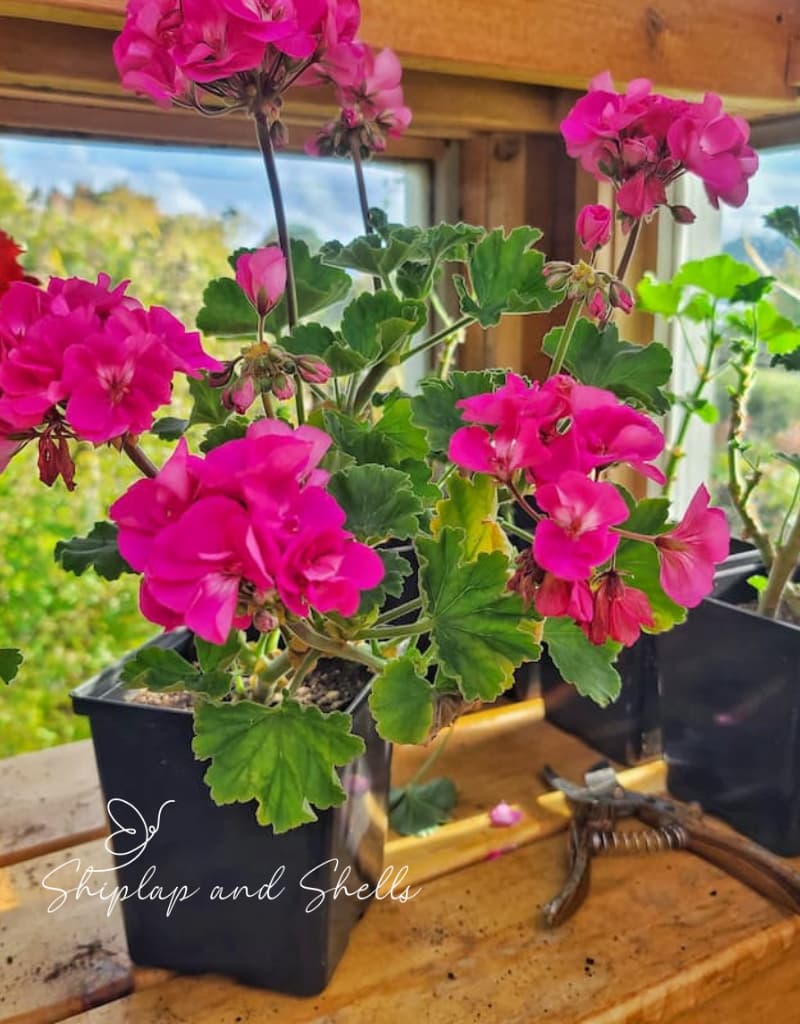
As an Amazon affiliate, I earn a commission from qualifying purchases at no additional cost to you. My blog also features other affiliate links for your convenience. Click here to read my privacy policy.
How Geraniums Grow from Cuttings
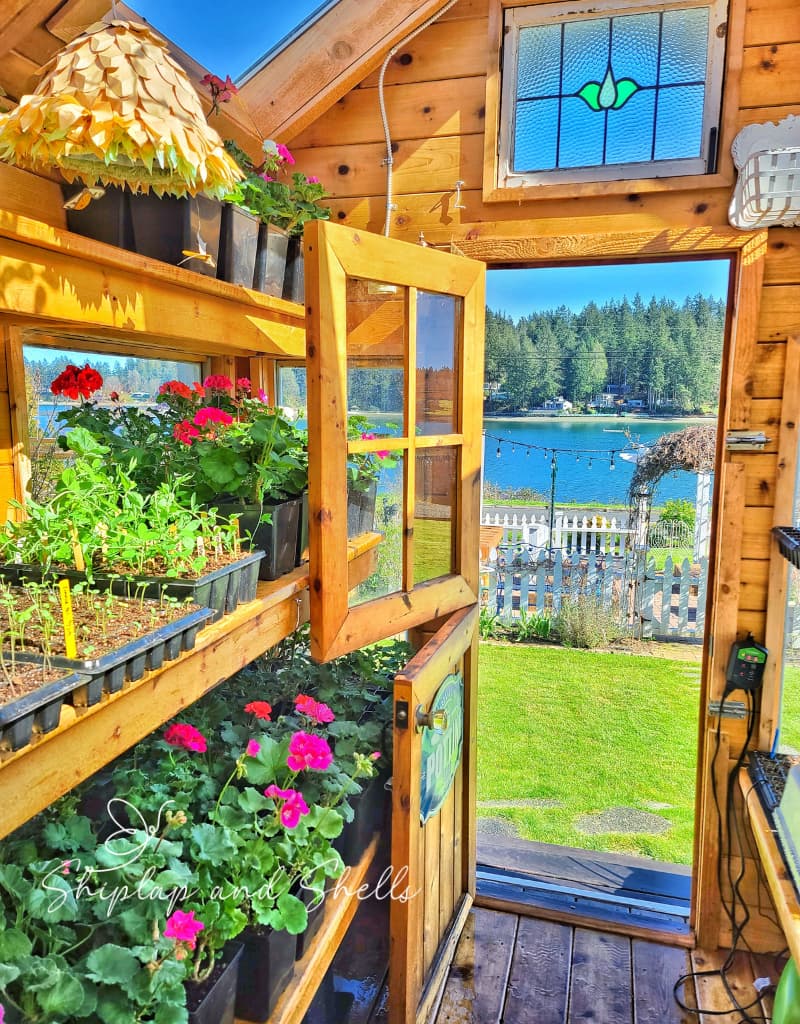
A geranium stem cutting can turn into a flower-producing plant through vegetative propagation.
The cutting is basically a clone of the parent plant and, when provided with the right conditions and care, has the potential to develop roots, grow into a mature plant, and eventually produce flowers.
Garden Supplies and Tools
Check out my favorite garden supplies and tools for the growing season. Whether you’re looking for potting soil or deer repellent, you’ll find what I use in my own garden.
How to Take Clippings from Geraniums
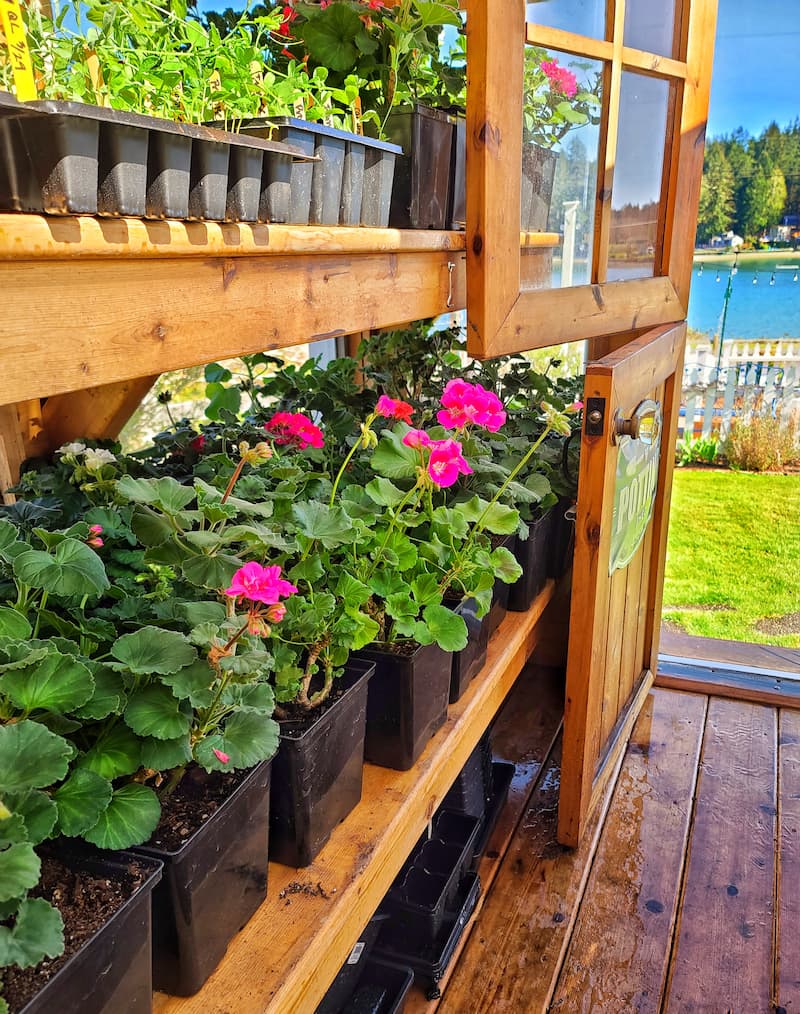
Geraniums are considered perennials in zones 10-11 but will grow annually and overwinter indoors in other hardiness zones.
Technically, you can take cuttings at any time of year. But it’s still better to wait until the blooming cycle is at its slowest, during the dormant period, to get the best results.
1. Gather Your Supplies
Get together the materials you’ll need to take cuttings from geranium plants. You will need the following:
2. Choose Healthy Stems to Cut
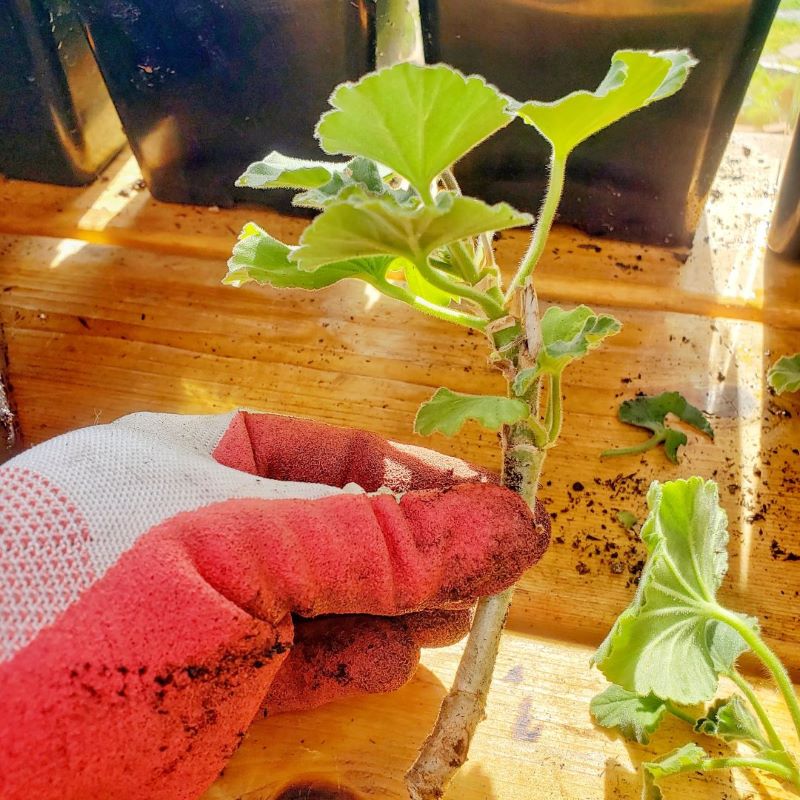
To get started, select a healthy, mature geranium plant that is free of disease, has strong stems, and has vibrant leaves. The stems should have at least two healthy leaves about 4-6 inches long.
3. How to Start Geranium Cuttings
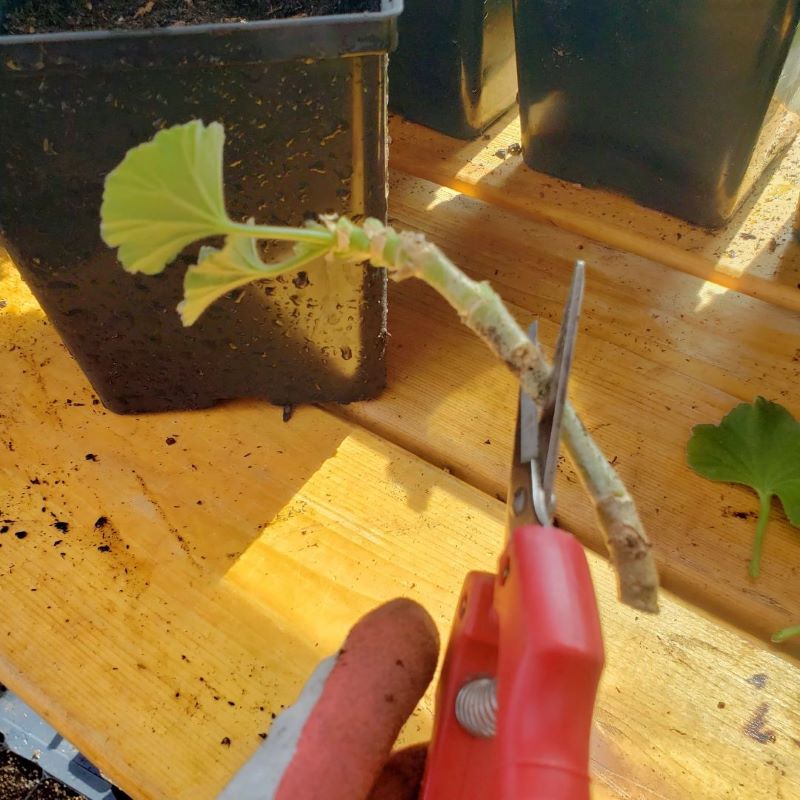
Be sure to use a sharp knife or pair of clean garden pruners.
To start geraniums from cuttings, carefully snip a 3-4 inch cutting just below a leaf node of the geranium stem off of the geranium parent plant. This will encourage new growth in the mother plant. Cut at an angle to allow more surface area for moisture absorption.
Remove any leaves, flowering stems, and scales from the lower half of the cuttings to reduce moisture loss and encourage root growth.
Planting Geranium Cuttings
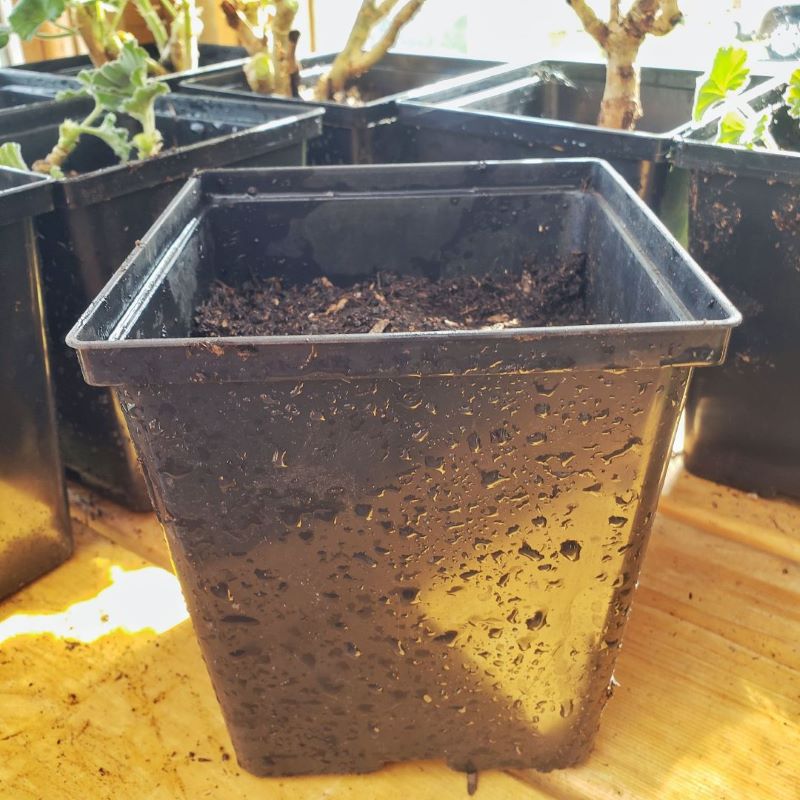
Now that you’ve selected the main stem for your geranium start, here’s a look at how to plant your cutting.
1. Use a Clean Container
If you are planting your geraniums in individual pots, use a small option with drainage holes. You can also plant several geraniums together in a larger 5 “container.
It’s essential to clean your pots before planting your new plants. I use hot and soapy water, with a touch of bleach. Rinse and air dry before using.
2. Fill the Pot With Moist Soil
After selecting a pot with drainage holes, fill it with moist, quality potting soil.
I also use seed-starting compost because it provides the correct mixture of moisture, nutrients, and oxygen that the new cuttings need to establish roots.
3. Determine Whether to Use Hormone Rooting Powder
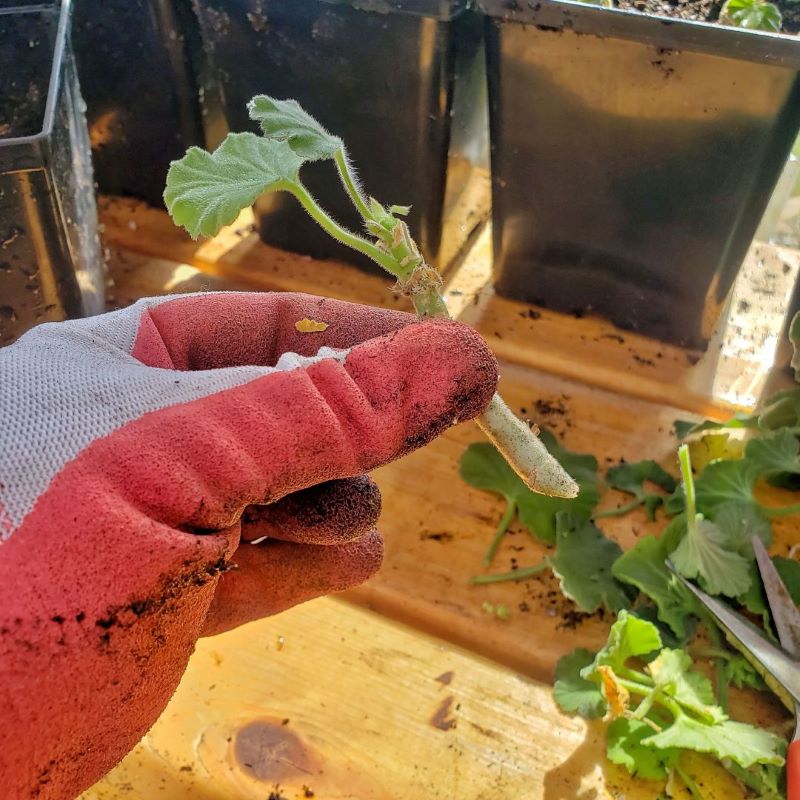
The wonderful thing about geraniums is how easy they are to root.
Dipping the end of the geranium cutting start into the rooting hormone is optional. Some professional gardeners suggest NOT using hormone-rooting powders because they can cause root rot.
Other geranium propagation methods include dipping the stems in honey, vitamin C, and water solutions.
I did an experiment last year where I dipped half my geranium cuttings in honey and half with nothing. Both plant starts rooted exactly at the same rate. I do not use anything when planting my cutting.
4. Plant the Geranium Cuttings
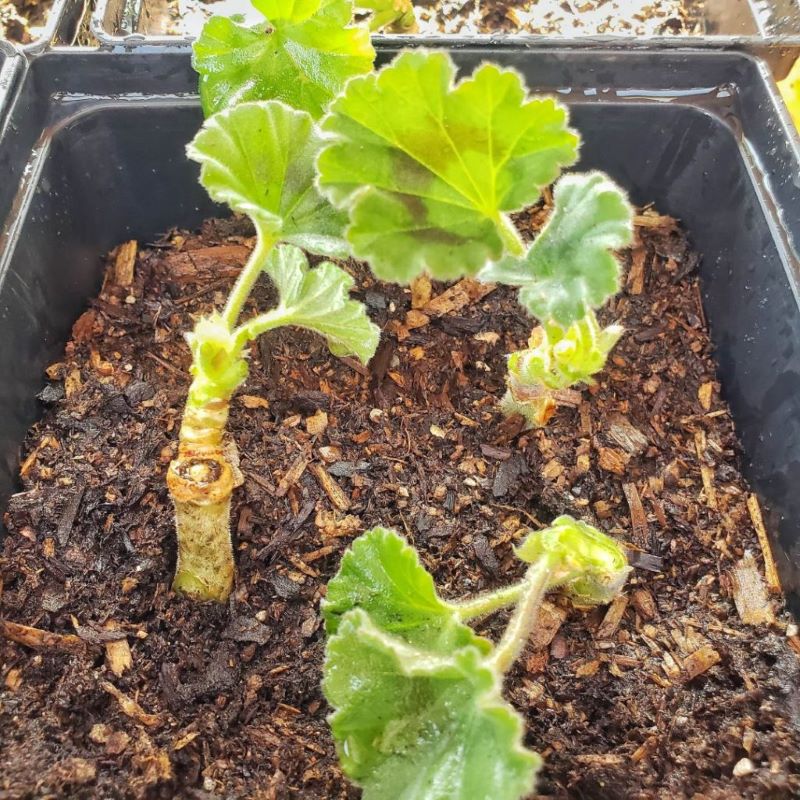
After making a hole using your finger or a dibbler, insert the geranium cutting into the pot of well-drained but moist soil about an inch deep. Gently press down around the stem to secure it into place. Loosely fill the hole around the stem.
If you are planting several geranium cuttings together in one container, remove any dead leaves and plants that start to turn brown and unhealthy. This will keep the diseased geranium cutting from spreading to other plants.
Be sure to label the plants so you know their variety and color when it’s time to transplant them into the garden.
5. Water and Choose a Location
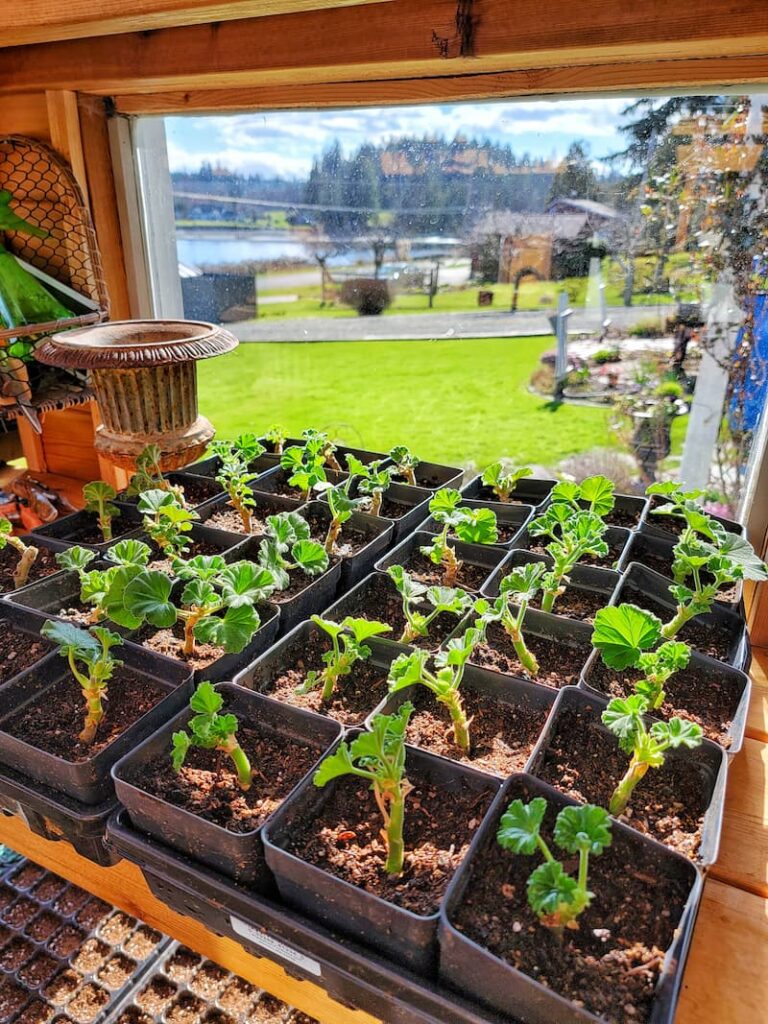
Water the soil until it’s moist but not saturated.
Provide good light and a warm setting while the new geranium plant starts to establish roots. Place the new plant in a warm spot or near a sunny window to get filtered light but not direct sunlight.
Be sure to keep the geraniums in a space that doesn’t freeze. I keep my cuttings in my heated greenhouse at a temperature of at least 45°F.
6. Place on Heating Mat
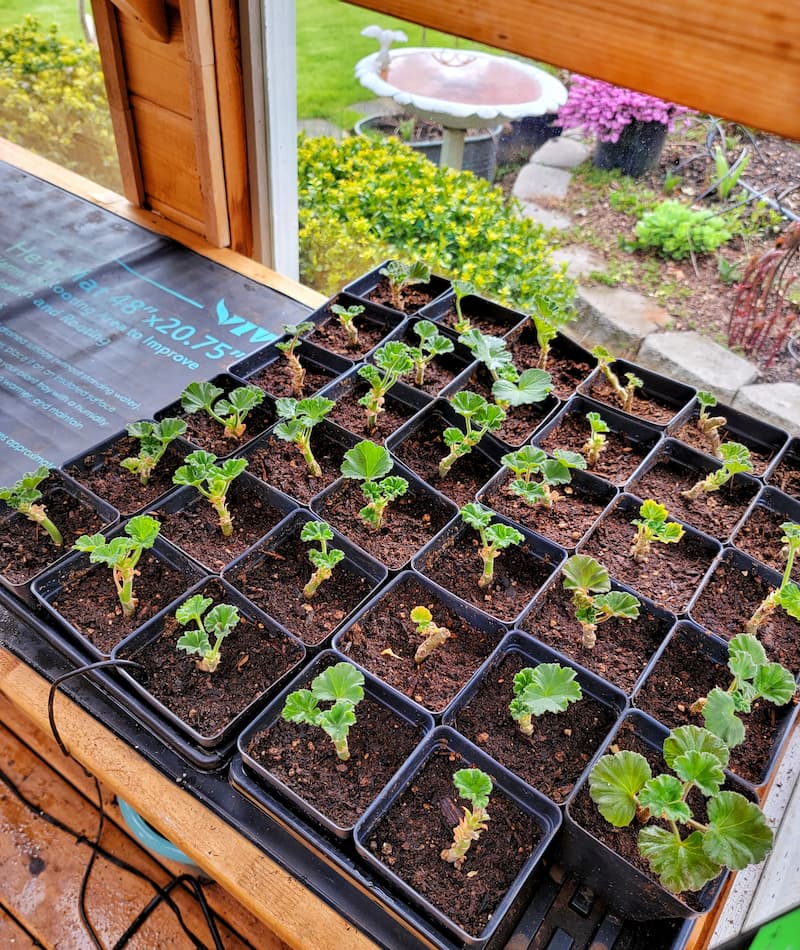
Although this is optional, your geranium cuttings will benefit from the warmth underneath a heating mat if you can. This will help the new roots grow more quickly, and there’s a higher success rate when using heat.
I don’t put a humidity dome lid over the new geraniums as the roots are prone to rotting in high humidity.
How to Care for Geranium Cuttings
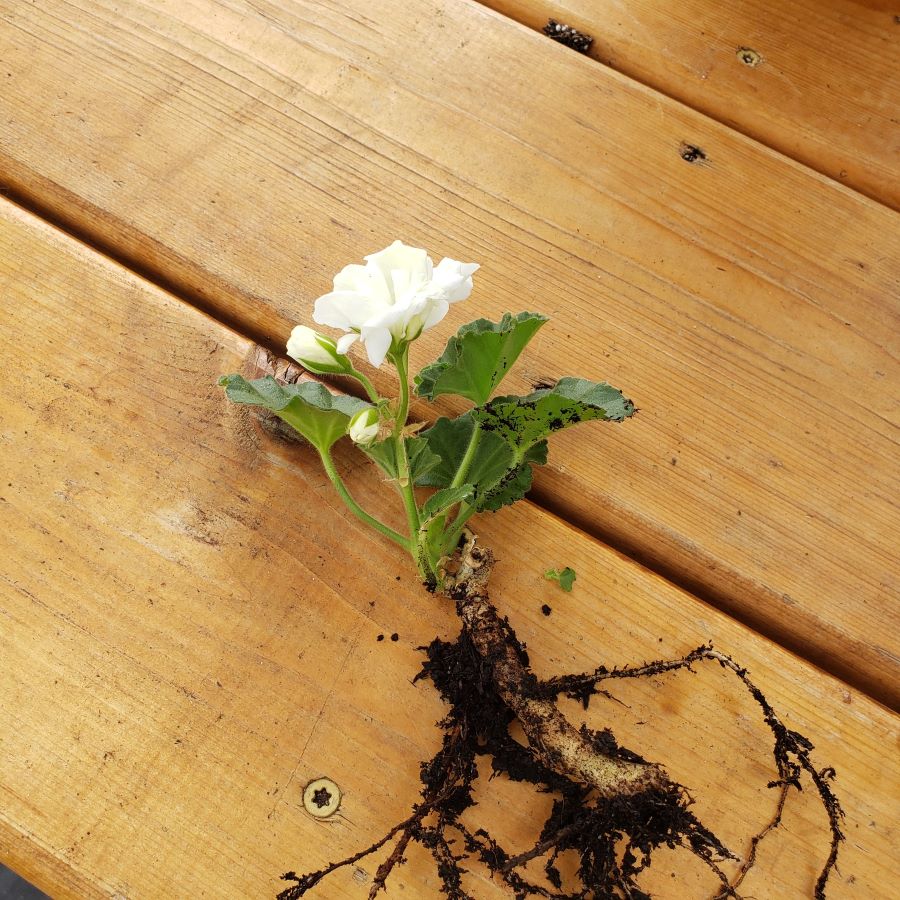
This section is a guide for watering needs and the time it takes to establish roots and transplant them to the garden.
When to Water Your Geranium Plant Starts
Watering your geranium plant starts is a crucial aspect of their care, and finding the right balance is key to their healthy development.
Geraniums prefer to be kept slightly on the drier side rather than overwatered. Water them thoroughly when the top inch or so of the soil feels dry to the touch.
Watering frequency can vary depending on factors such as temperature, humidity, and the type of pot or container you’re using. In hot and dry conditions, you may need to water more often, potentially every 2-3 days, while in cooler and more humid environments, watering every 5-7 days could suffice.
Avoid letting your geraniums sit in standing water, as they are susceptible to root rot. To prevent overwatering, ensure proper drainage in your pots or containers, and always water at the base of the plant to avoid wetting the leaves.
How Long Does it Take Before Transplanting?
You should notice new growth from the cuttings between 6-8 weeks and sometimes as early as a month. It’s easy to check for roots. Pull on the stem to feel if the roots are holding in place.
Transplant the geranium cuttings into larger pots once they have established strong root systems for a healthy plant.
Planting Geranium Cuttings in the Garden
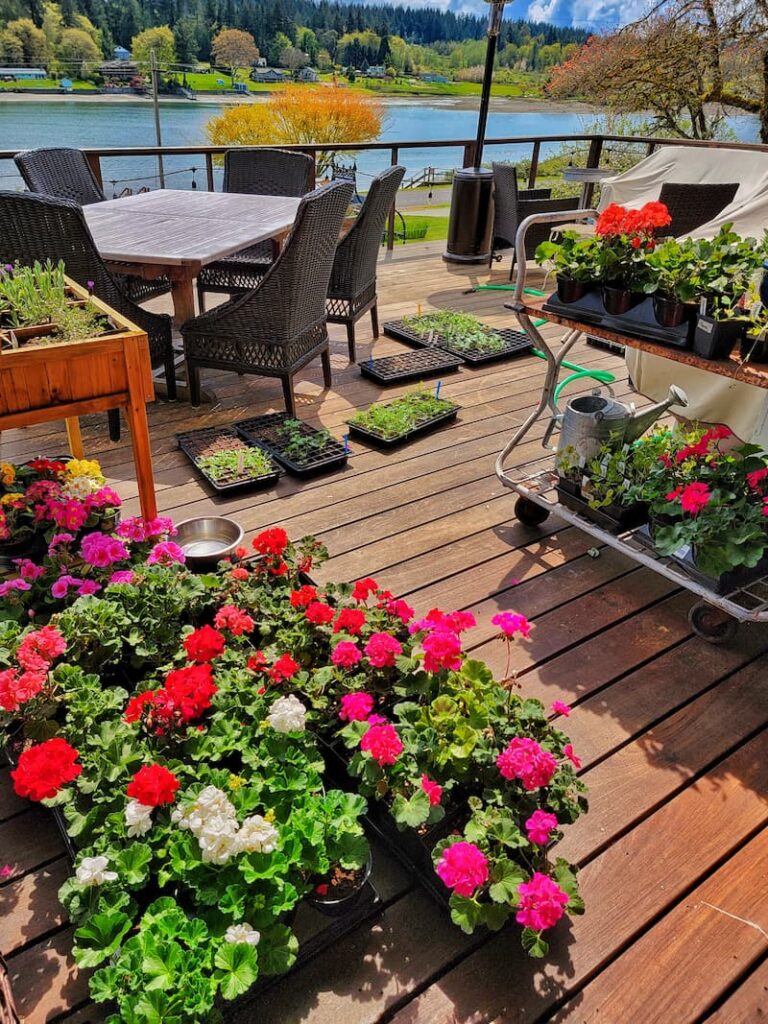
You’ve started your new geranium cuttings, and they have established roots. Now you’re ready to plant them in the garden. Here are some steps to make that happen.
Harden Off Your Starts
First, resist the urge to transplant your newly rooted geranium plants in the garden until they are hardened off.
You can start hardening off your young plants once the winter months have passed and any risk of frost has passed.
Remember that these cuttings, along with the mother plants, have been sheltered from the cold and wind and will need to acclimate to outdoor conditions before being planted outside the greenhouse or your warm home.
Moving Geraniums to the Garden
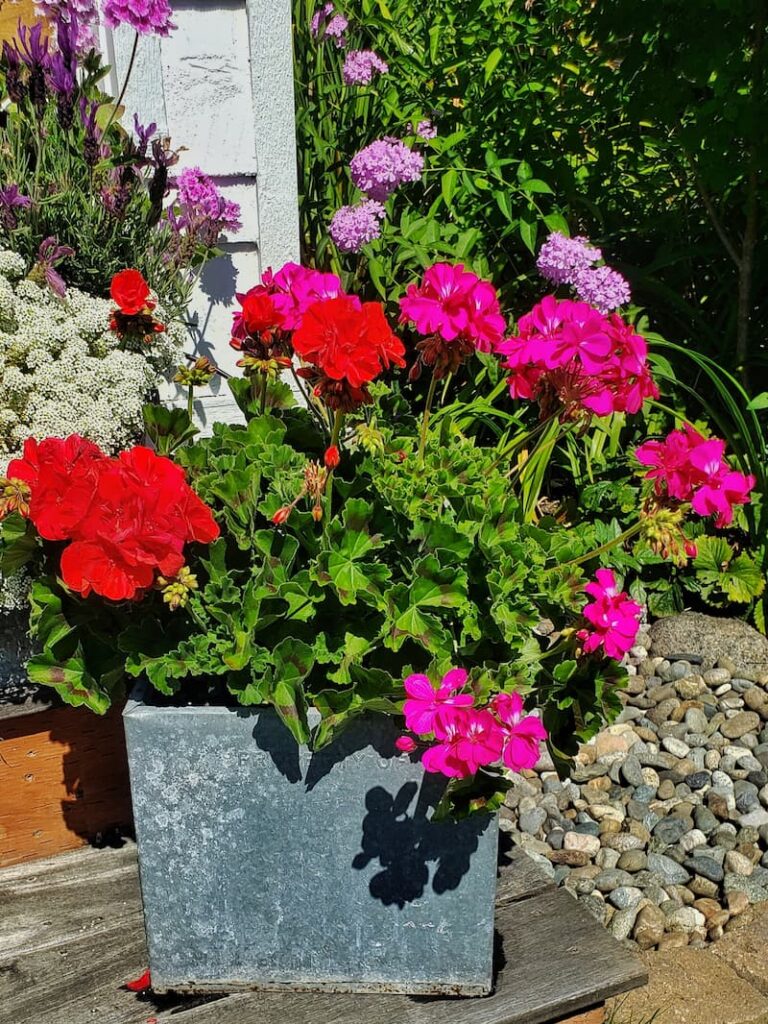
The best time to move your geraniums outdoors is in the spring, once the last frost has passed and the weather starts to warm up. Before transplanting, ensure your garden soil is well-draining and packed with organic matter. I love choosing a sunny (or partially shaded) spot because geraniums really thrive in plenty of light.
When you’re ready to transplant, gently remove your geraniums from their pots without disturbing the roots too much. Dig a hole that’s as deep as the pot and twice as wide, then set the geranium in the hole, backfill with soil, and gently tamp it down. This helps the soil settle nicely around the roots.
After planting, give your new geraniums a thorough watering to settle the soil and provide them with the moisture they need to start thriving.
Remember to space them about 12 to 18 inches apart to ensure proper air circulation, which is key to keeping your plants healthy. Enjoy watching your geraniums flourish in their new home!
Established Geranium Plants
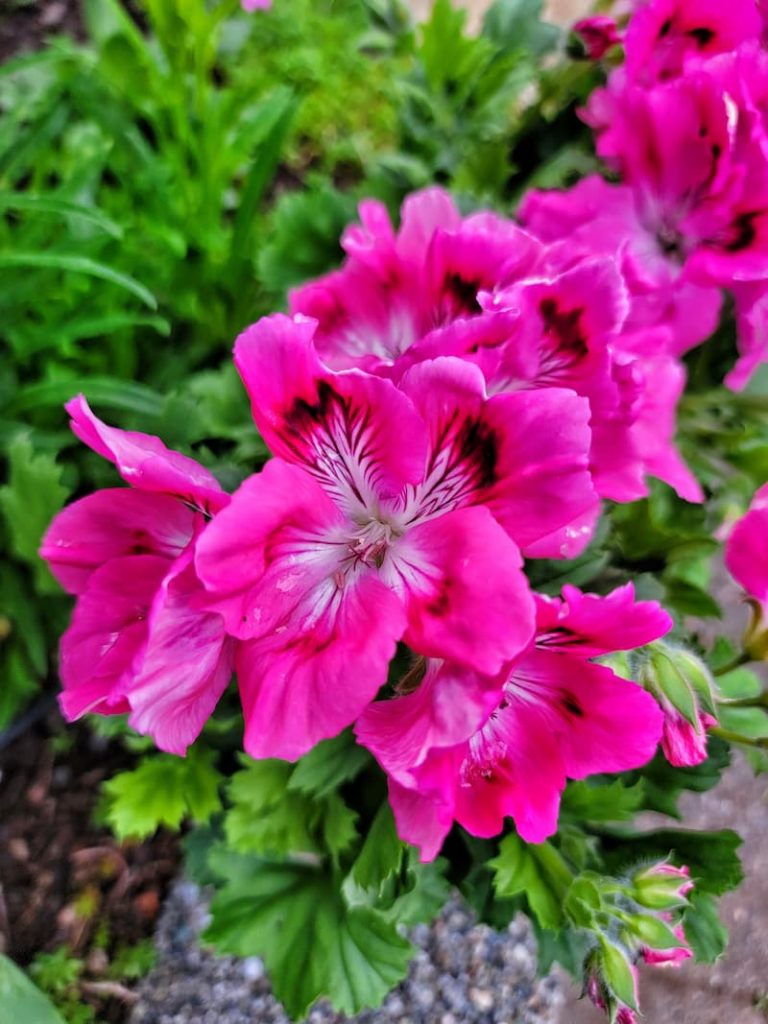
Pinch out the growing tips of your more established mother plants to make them bushier and better shaped. This will also ensure more flowers to enjoy throughout the summer and promote more growth from below.
Read more about overwintering geraniums in my blog post 4 Easy Ways to Overwinter Geraniums.
Seed Starting Supplies
Check out my favorite supplies and tools for starting seeds indoors. Whether you’re looking for grow lights or a seed starting mix, you’ll find what I use in my own greenhouse.
Common Questions About How to Start Geraniums from Cuttings
Will Geranium Cuttings Root in Water?
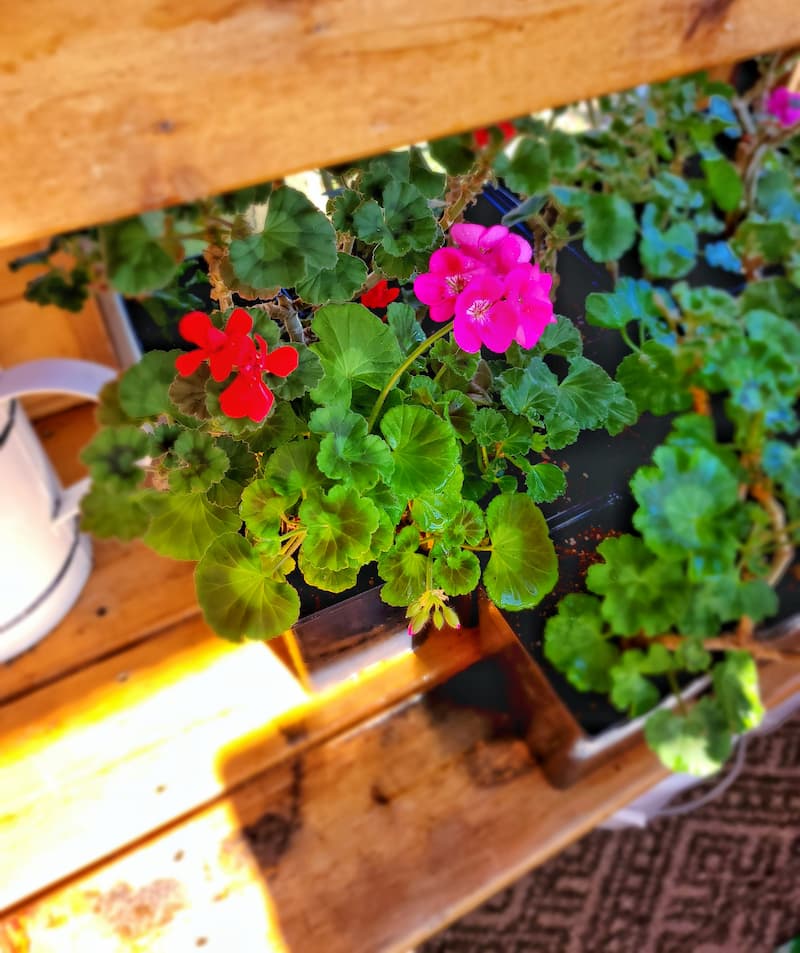
Yes, geranium cuttings can root in a jar of water, but it’s not the most reliable method for propagating them. While many other plants root well in water, geraniums tend to root more successfully in a well-draining potting mix or soil.
Is it Better to Root Geranium Cuttings in Water or Soil?
It is generally better to root geranium cuttings in soil or a well-draining potting mix rather than water for more consistent and successful results. While rooting geranium cuttings in water is possible, it may not be as reliable, and the resulting roots can be weaker than those grown in soil. Here’s why rooting in soil is often a preferred method:
Where Should I Store Geranium Cuttings?
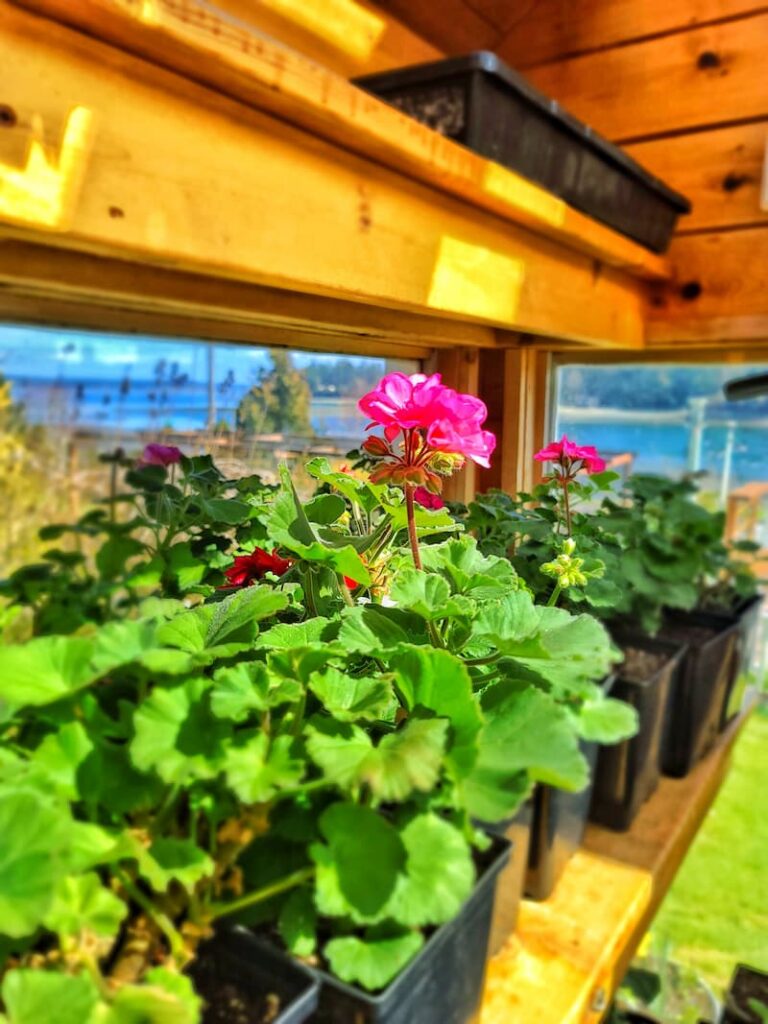
Properly storing geranium cuttings is essential to ensure their successful propagation.
Your geranium cuttings should be placed in an area with bright, indirect light, as direct sunlight can be too harsh and potentially harm them.
Adequate air circulation is also crucial to prevent mold or fungal issues. To hold the cuttings, be sure to use clean, sterile containers or trays and avoid letting them sit in standing water.
Geraniums are tender perennials that tolerate temperatures of 45°F or higher, and temperatures between 55°-65°F are ideal when growing geraniums indoors.
How Do You Use Honey as a Rooting Hormone?
Dip the cut end of each geranium cuttings into the honey, ensuring the cut surface is coated with a thin layer of honey.
The honey acts as a natural rooting hormone and provides antimicrobial properties to protect the cutting.
How Long Does It Take for Geranium Cuttings to Root?
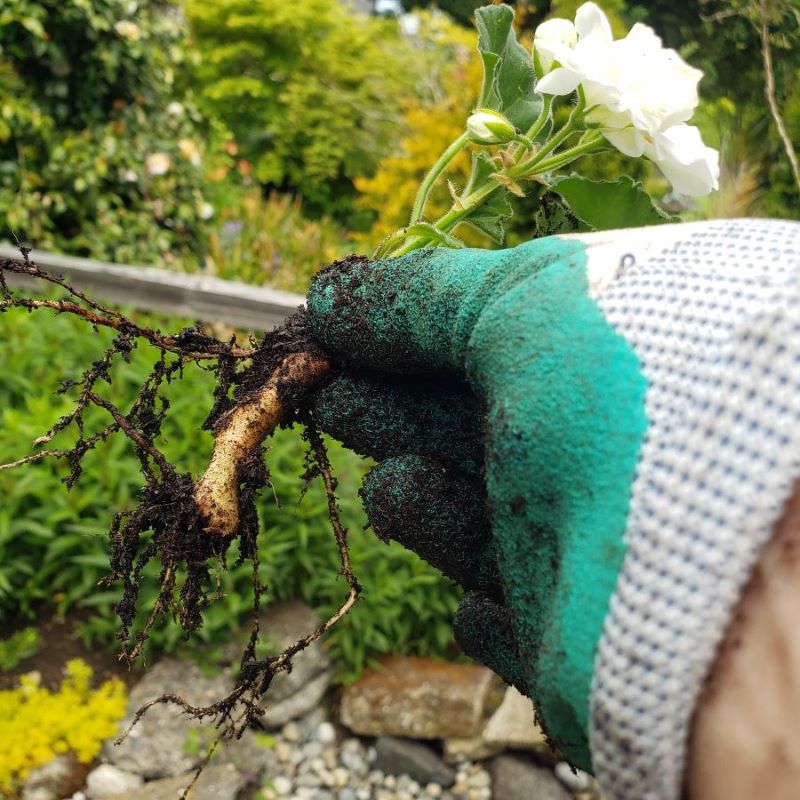
Root development should usually occur in 6-8 weeks, but it can sometimes be as short as a month. The amount of time depends on the soil conditions and the temperature.
Where do you Cut Geraniums to Root Them?
Take a 4-6 inch cutting from a healthy geranium stem below a leaf node.
Should Geranium Cuttings be Covered?
Although many gardeners cover their geranium cuttings, I avoid covering them with a humidity dome. Geranium roots are prone to rotting in high humidity.
Final Thoughts About Starting Geranium Cuttings

Starting geraniums from cuttings is a simple and rewarding way to expand your garden without the cost of buying new plants. By selecting healthy stems, rooting them in the right conditions, and providing proper care, you can grow vibrant, thriving geraniums year after year.
Whether you’re filling your flower beds, adding color to containers, or overwintering your favorite varieties, propagating from cuttings ensures a continuous supply of these classic blooms. With a little patience and the proper technique, you’ll have a flourishing garden full of homegrown geraniums in no time!
If you have any questions or additional suggestions, please share them in the comments below. And be sure to share this blog post link with anyone who may find these gardening tips useful.
Until next time,
Happy Gardening!

I’m a self-taught hobby gardener. Everything I share on my blog is my opinion and what has worked for me.
MORE POSTS
For You To Enjoy
Follow Me for More Inspiration
Shop my Amazon Storefront, LTK sources, and my favorite home decor, garden, and lifestyle products. When you purchase from one of my links, I earn a small commission, which helps me continue sharing all the content you expect on my blog.
Be sure to follow me on Pinterest, Instagram, Facebook, TikTok and LIKEtoKNOW.it. Do you like gardening? Join my Facebook Gardening Tips & Tricks group.
If you haven’t already, subscribe to my blog at the bottom of this post so you’ll never miss a thing.
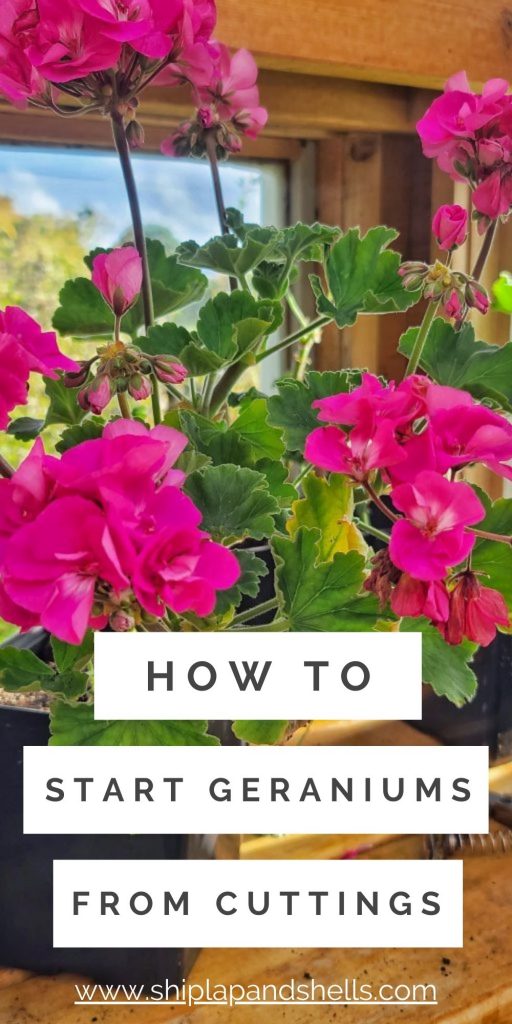


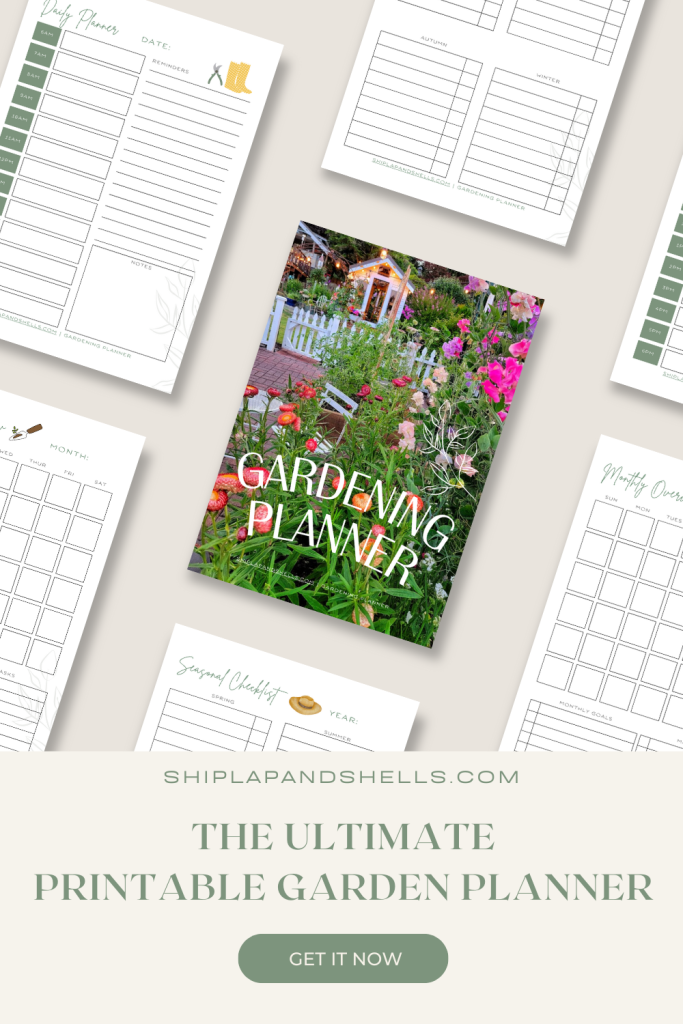

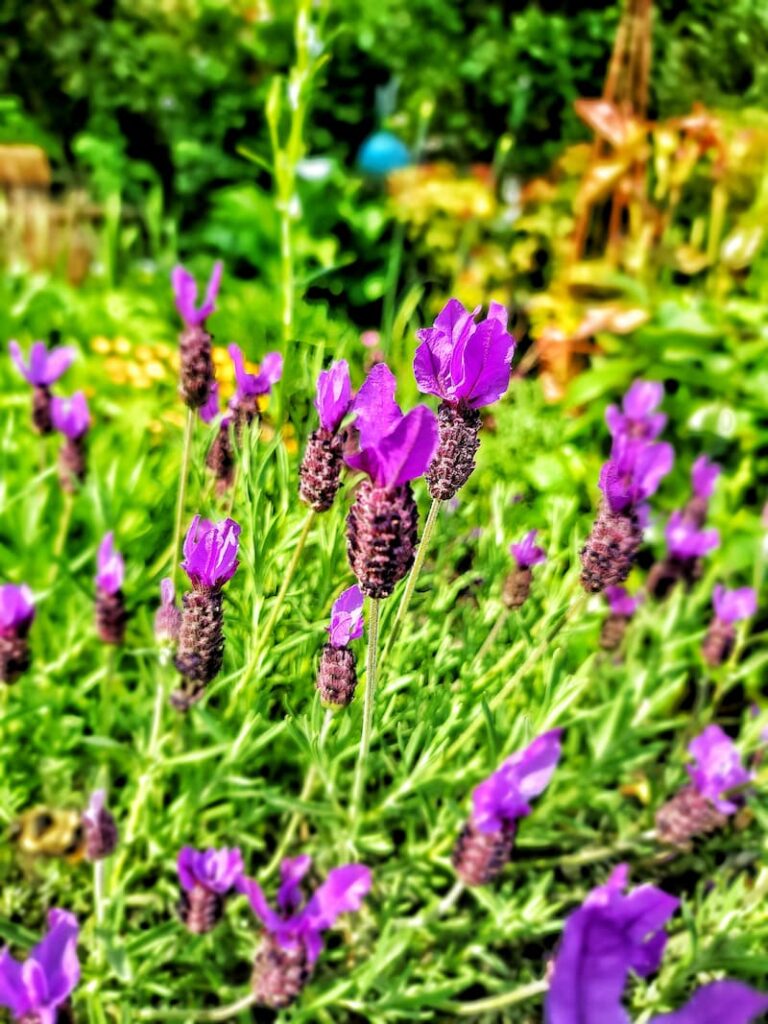
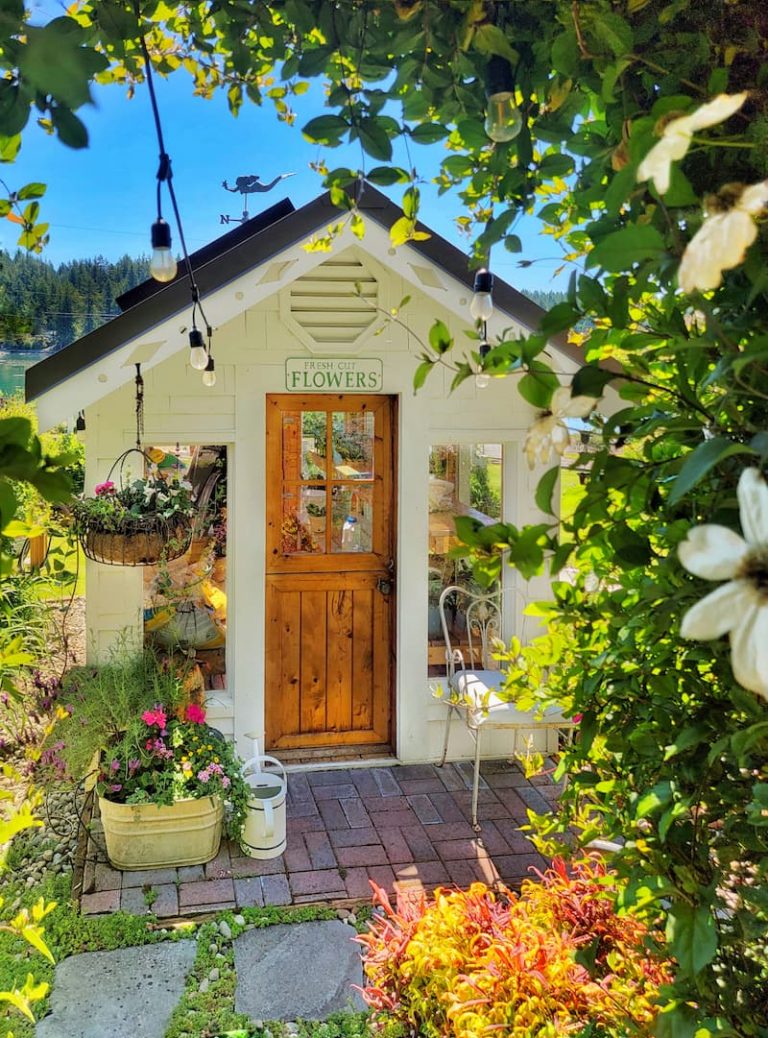
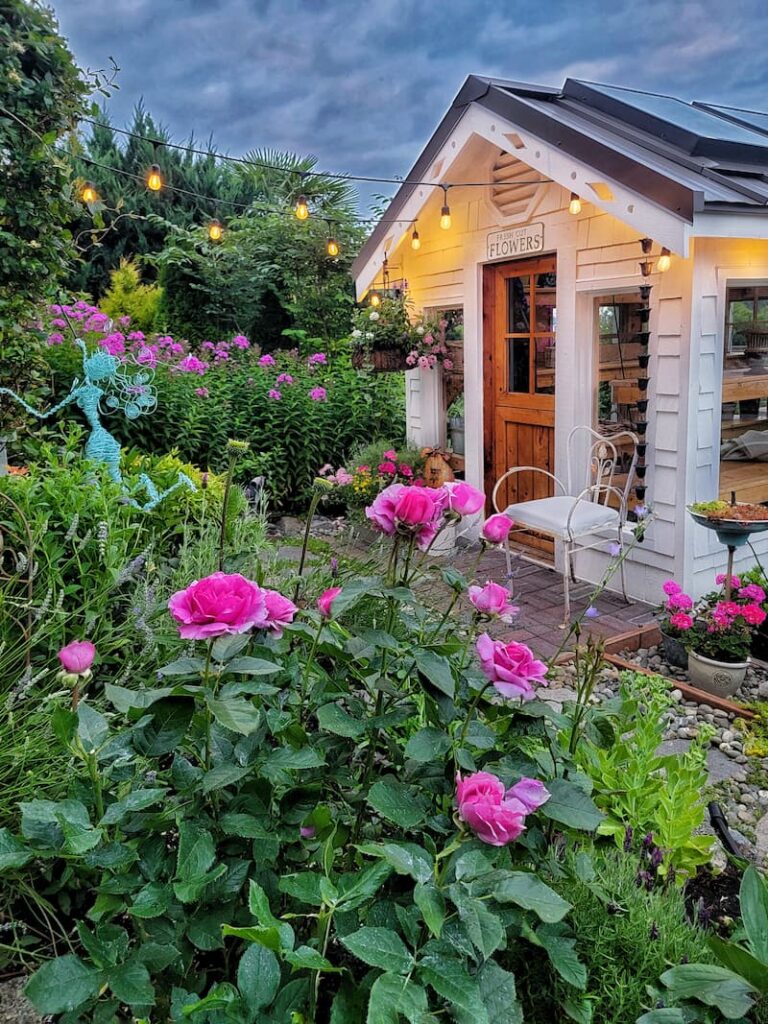

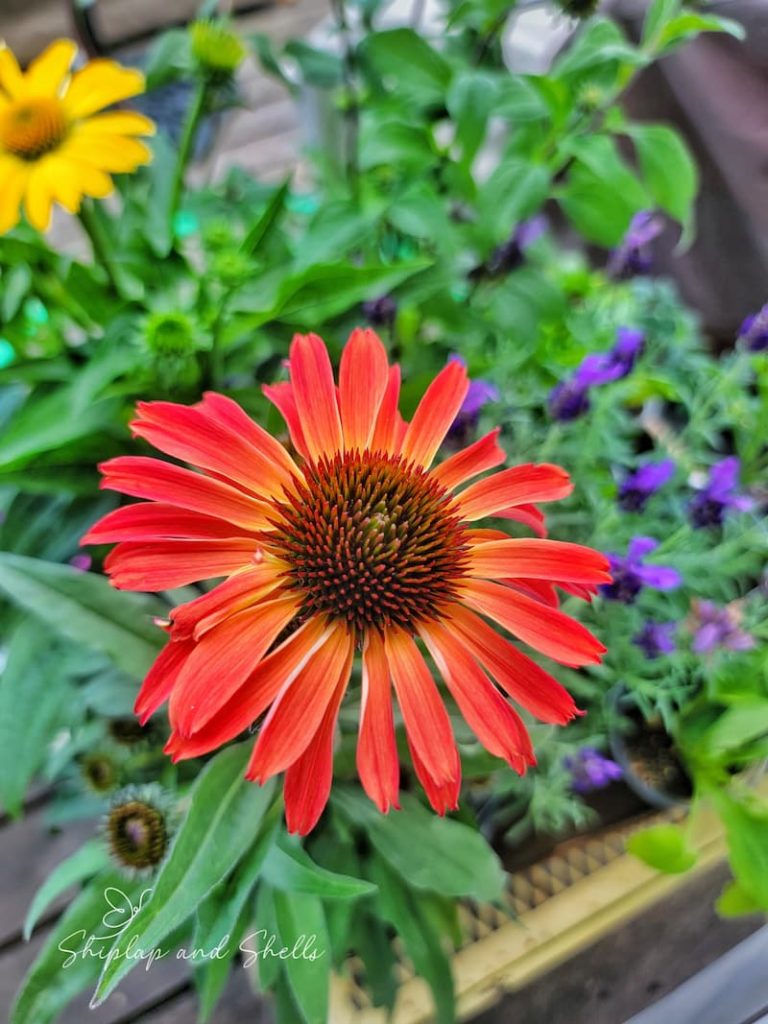
How and when do you prune the cuttings so they don’t end up as just a bunch of elongated single stems? Every article I’ve seen on pruning to make a geranium bushier refers to an established plant that already has multiple stems. Should I just put several cuttings in 1 pot so it looks good right away? I’m doing the cuttings for a benefit plant sale next year and will be able to overwinter the cuttings in a heated greenhouse.
Hi Elwyn,
Now would be a great time to take cuttings from your existing geraniums because the plants are actively growing and the cuttings are more likely to root successfully. Once the cuttings have rooted and show new growth (typically after 2-4 weeks), pinch off the growing tips to encourage the plant to branch out. You can start out with placing more than one stem cutting in a container but you may want to do less work in the long run since the plants will eventually fill out. Then you can overwinter these new starts in your greenhouse.
Please email me at [email protected] if you have any other questions or if I haven’t answered this one correctly.
Wondering when to start fertilizing geranium cuttings and the NPP numbers. Had read somewhere that cuttings under grow lights could use a diluted mixture during the winter months.
Great post Kim! I pulled a few geraniums before the first frost this year and will try to grow more from the mother plants in the sunroom.
U didn’t mention if I can get roots started by just putting in a glass of water.
Thanks for your help.
I’m so sorry it took me so long to answer your question. Yes, you can absolutely root your geranium start in the water. I have never seen it, but I have seen several articles that say it works.